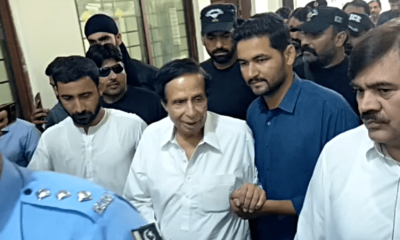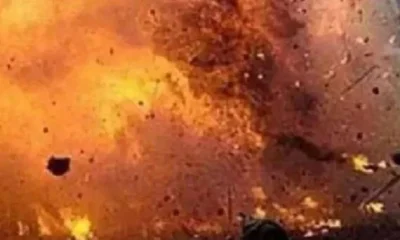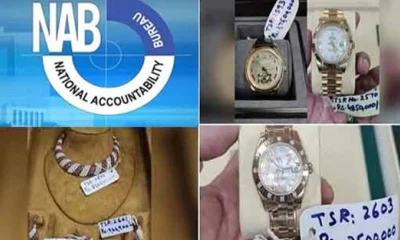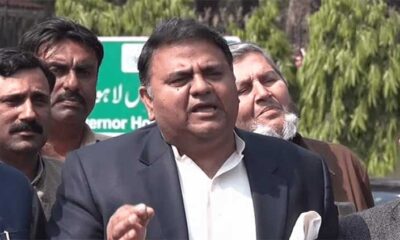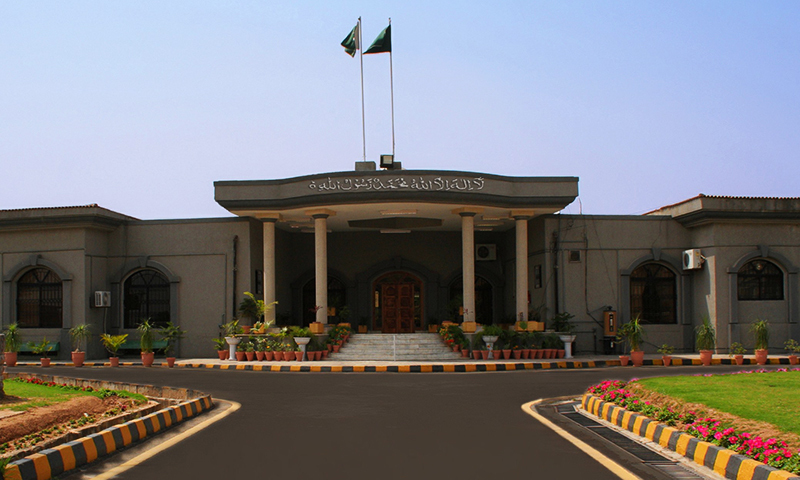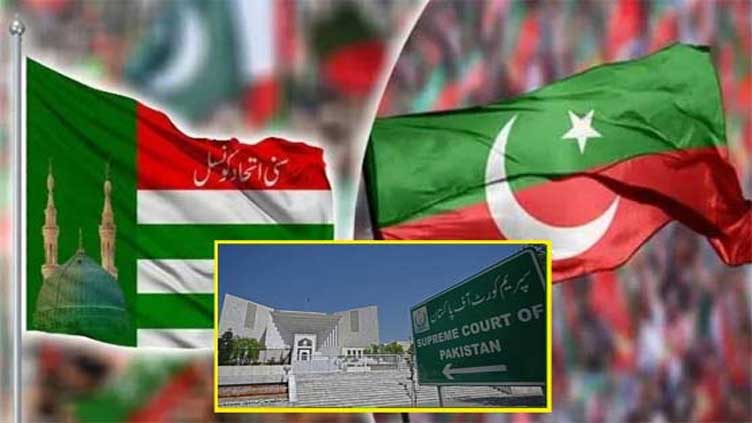- Accountability court directs NAB to present PTI chief on May 17.
- Khan tells judge that NAB officials didn’t show him warrants.
- Hearing was held at Islamabad Police Lines.
ISLAMABAD: The legal woes of Pakistan Tehreek-e-Insaf (PTI) Chairman Imran Khan multiplied on Wednesday when an accountability court sent him on an eight-day physical remand to the National Accountability Bureau (NAB) in the Al-Qadir Trust case.
The former prime minister was presented before Judge Mohammad Bashir in the land corruption case at Islamabad Police Lines, which was given the status of a court as a “one-time dispensation” late on Tuesday night.
Judge Bashir, while announcing the verdict reserved earlier, directed officials to present Khan in court on May 17.
Khan was arrested on Tuesday by Rangers — becoming the seventh former prime minister to be arrested in Pakistan — on the orders of the NAB, an autonomous anti-graft agency, in relation to the corruption case. He was then moved to its office in the garrison town of Rawalpindi for questioning.
Later, announcing the reserved verdict on Khan’s arrest, the Islamabad High Court (IHC) said that the arrest was legal; therefore, Khan’s legal team challenged the verdict in the Supreme Court; however, the plea was turned down by the apex court citing various reasons.
The cricketer-turned-politician faces a slew of court cases and was also indicted today in Toshakhana case — which involved allegations that he did not properly disclose earnings from the sale of state gifts from his time in office.
Al-Qadir Trust case hearing
At the outset of the hearing, the NAB sought a 14-day physical remand — the maximum allowed in the law — but the PTI lawyers opposed the request.
Sources told Geo News that Khan’s legal team was earlier denied permission to meet the party chief ahead of the hearing; however, once the hearing began Khan held discussions — during a hearing break — with lawyers Khawaja Haris, Faisal Chaudhry, Ali Gohar, and Ali Bukhari.
Several officials of the anti-graft watchdog including Special Prosecutor Rafay Maqsood, Deputy Prosecutor Muzaffar Abbasi, Prosecutor Sardar Zulqarnain and investigation officer Mian Umar Nadeem were present in the court.
The NAB prosecutor informed the additional sessions judge Mohammad Bashir that Khan was shown warrants at the time of arrest; however, the PTI chief denied the claims saying that he saw the arrest warrants after reaching the NAB office.
Abbasi assured the judge that all necessary documents will be provided to the PTI chief’s lawyers. The judge, taking a break, directed the legal team to hold discussions with Khan as the former complained that the authorities did not allow them to meet their client before the hearing.
When the hearing resumed after the break, Khawaja Haris argued about the legality of Khan’s arrest.
Sharing the details of the case, Abbasi said that the money was seized by the UK’s National Crime Agency and sent it back to the Government of Pakistan.
After the completion of the lawyer Haris’s argument, Khan complained that which record is the anti-graft watch dog seeking that he is not sharing with the officials.
“The NAB is saying they want to compile the records,” Khan said, questioning when did he deny access to any of the records.
The former prime minister added that all transactions were made after the approval of the cabinet. Recalling yesterday’s events, Khan urged the judges to summon his team of doctors, especially Dr Faisal.
After the defence and plaintiffs concluded their arguments, Judge Mohammad Bashir reserved the verdict which was announced after almost two hours.
Hearings held at a ‘special location’
It should be noted that Khan was not brought to a regular court in the federal capital and his scheduled hearing took place at the location where he was under custody.
The Islamabad chief commissioner on Tuesday said that Khan, instead of being taken to F-8 Court Complex and Judicial Complex G 11/4, will be presented at New Police Guest House, Police Lines — which has been given one-time status of the court for this particular hearing, a notification issued by the Government of Pakistan read.
The decision to present Khan at a special court instead of a NAB court was taken in view of security threats to his life. According to sources, the PTI chief was shifted to an unknown place late at night from NAB’s office.
“[…] the Provincial Government, as a one-time dispensation, is pleased to declare New Police Guest House, Police Lines Headquarters H 11/1, Islamabad, the venue for hearing of case titled ‘District Election Commissioner Vs Imran Khan Niazi’ and for the appearance of Mr Imran Khan Niazi before Honorable Judge Accountability Court – I, Islamabad on 10th May 2023, instead of F-8 Court Complex, Islamabad and Judicial Complex G 11/4, Islamabad,” notification issued by the provincial government, ICT read.
It should be noted that entry access to special court was only granted to people whose name was added to the court list.
Imran Khan declared medically ‘fit’
Meanwhile, the sources said that a medical report submitted to the NAB showed that Khan was declared fit and he did not complain about any pain to the doctors examining him.
A day earlier, immediately after being arrested Khan was taken for a medical checkup. A medical board, comprising seven doctors from the Pakistan Institute of Medical Sciences (PIMS) hospital and two doctors from the Polyclinic, examined Khan and conducted several tests.
The report submitted by the board, headed by Dr Rizwan Taj, showed that Khan’s blood pressure, sugar level, and heartbeat were normal after repeated tests.
Asad Umar arrested from IHC premises
Ahead of Khan’s hearing, PTI Secretary General Asad Umar was arrested from the IHC premises by the Anti-Terrorist Squad of the Islamabad police.
Umar was arrested from the IHC Bar Association’s office where they had been preparing a plea to file in the IHC to seek a meeting with the party chairman.
The PTI lawyers tried to stop the police from arresting Asad Umar but their efforts went in vain.
Meanwhile, the police also tried to arrest the party’s vice chairman Shah Mahmood Qureshi; however, the former foreign minister was saved by fellow leaders and the legal team.
Legal team, leaders denied permission to meet Khan
Earlier in the day, a senior member of the party’s legal team claimed that they were denied permission to meet the former premier.
“We were stopped from meeting our client,” Babar Awan told Geo News. He added that nobody was being allowed to meet the PTI chief, terming the move against the Constitution.
It should be be noted that PTI leaders Qureshi, Umar, Awan and others were denied permission to attend the hearing or meet Khan.
Qureshi, taking to his Twitter handle, confirmed that the former Punjab governor Omer Cheema was also arrested.
“Following Chairman Imran Khan, PTI President Sindh Ali Zaidi and former Governor Punjab Omer Cheema have also been picked up, while our protesters were fired upon indiscriminately, killed, with women, children and the aged shelled and water cannoned with chemical water. Today, my offices in Multan were raided and my staff, beaten up,” Qureshi wrote.
He asserted that they will “never succumb to these dark forces”, and will always fight for Jinnah’s Pakistan.
Reiterating their call for protests, he wrote: “We continue to call @PTIofficial family workers, supporters, and the people of Pakistan onto the streets for peaceful protest against this unconstitutional behaviour. No one, absolutely no one, should be allowed to ride roughshod over the law.”
Protests erupt across Pakistan
Khan’s arrest from the IHC premises sparked violent clashes across the country during which hundreds of party workers were detained including former federal minister Ali Zaidi.
The party supporters in several cities took to the streets and clashed with security forces, who fired tear gas and tried to beat them back.
Videos circulated on social media — which was also down in several parts of the country — showed some supporters wielding sticks and face masks entering the army’s headquarters in Rawalpindi and shouting angry slogans.
Not only across Pakistan, Khan’s supporters took to the street in several parts of the world.
DIG Operations Lahore Ali Nasir Rizvi in his efforts to clear the Corps Commandor House was hit by PTI stone pelters last night, Geo News reported.
He has been seriously wounded — main facial bone and nasal bone has been fractured; eye punctured, retinal damage suspected. Reports suggest that the DIG might lose vision.
What is Al-Qadir Trust case?
The former prime minister, along with his wife Bushra Bibi and other PTI leaders, is facing a NAB inquiry related to a settlement between the PTI government and a property tycoon, which reportedly caused a loss of 190 million pounds to the national exchequer.
As per the charges, Khan and other accused allegedly adjusted Rs50 billion — 190 million pounds at the time — sent by Britain’s National Crime Agency (NCA) to the government.
They are also accused of getting undue benefit in the form of over 458 kanals of land at Mouza Bakrala, Sohawa, to establish Al Qadir University.
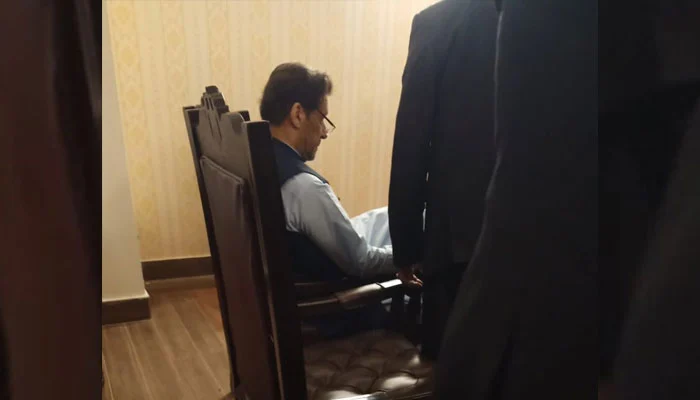

 Business7 hours ago
Business7 hours ago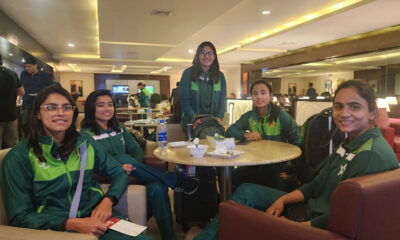
 Latest News7 hours ago
Latest News7 hours ago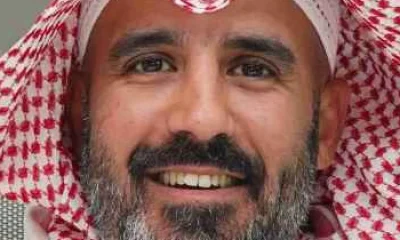
 Business7 hours ago
Business7 hours ago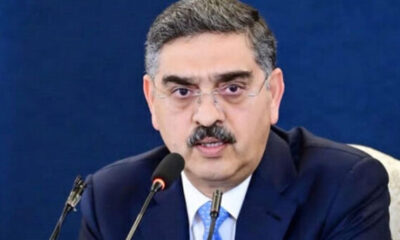
 Latest News8 hours ago
Latest News8 hours ago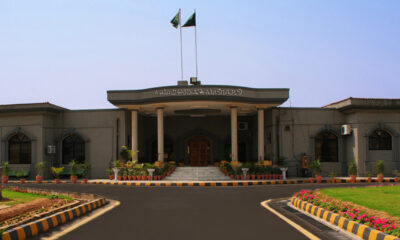
 Latest News7 hours ago
Latest News7 hours ago
 Pakistan7 hours ago
Pakistan7 hours ago
 Business8 hours ago
Business8 hours ago
 Latest News7 hours ago
Latest News7 hours ago
